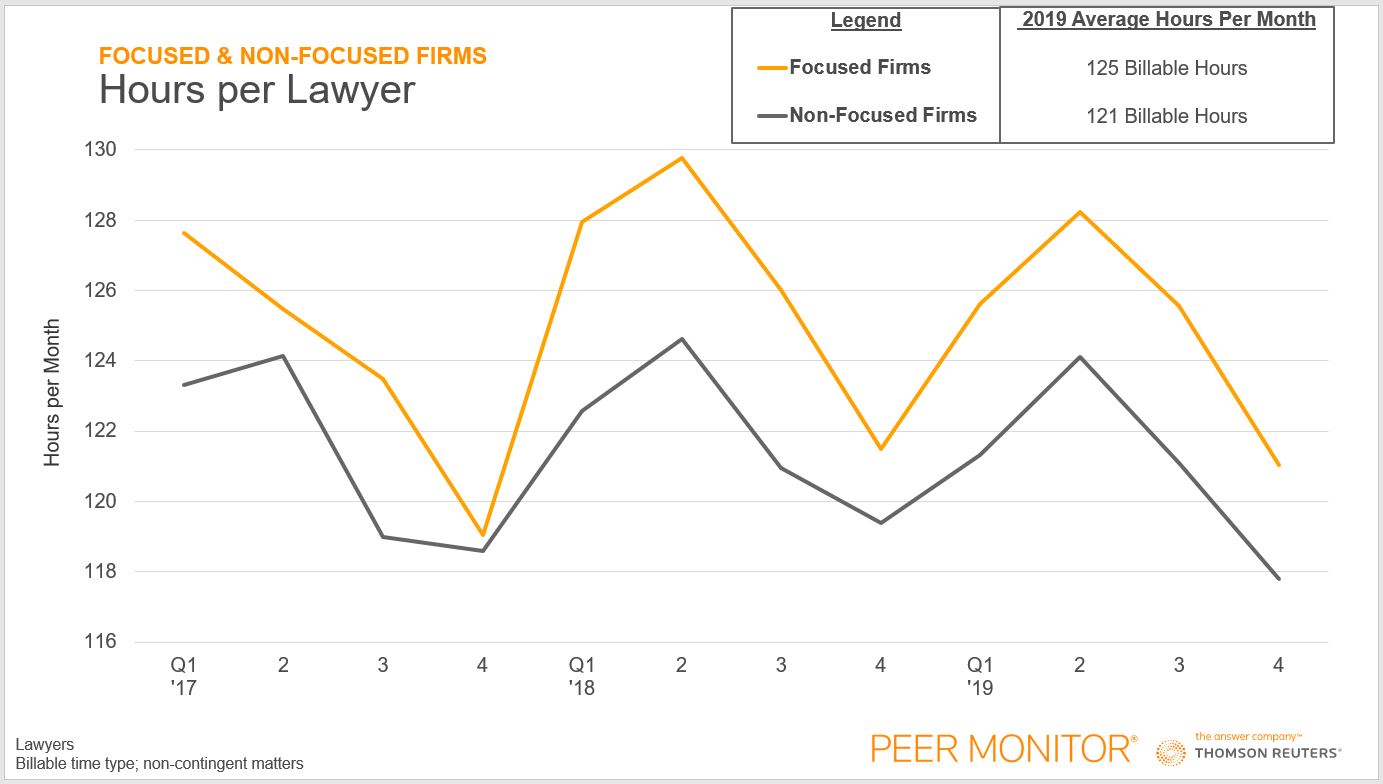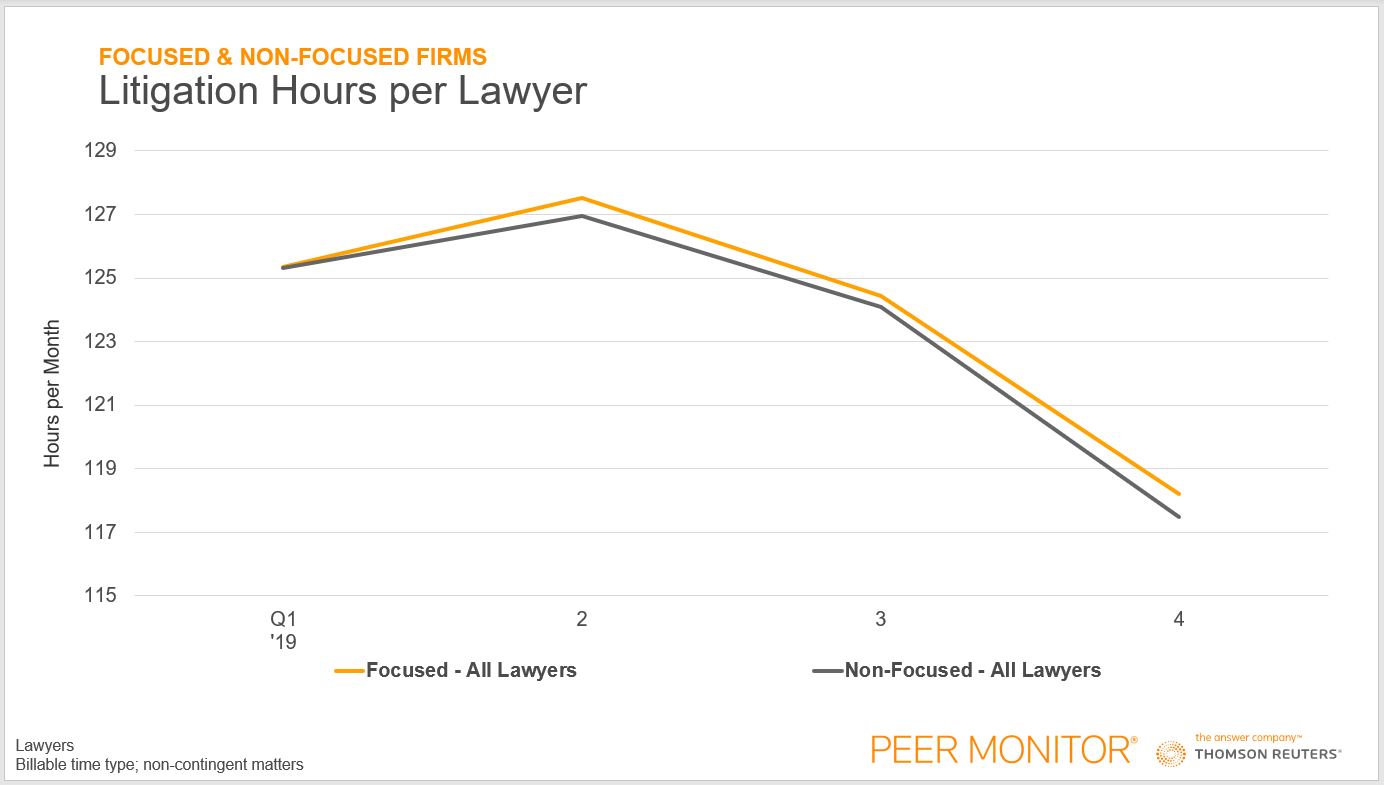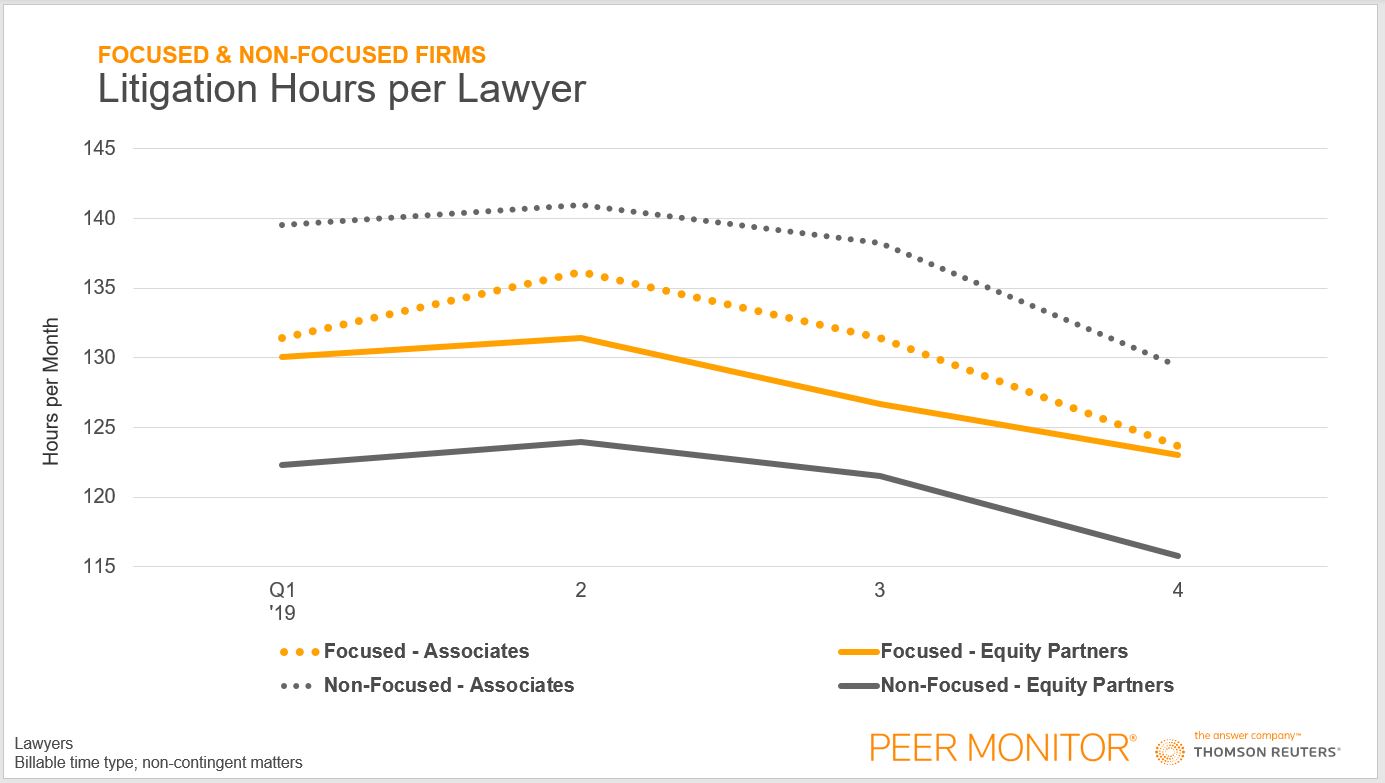As we continue our look at Focused Firms, we analyze where this focus really lies & examining the average amount of monthly billable hours is a good start
Efficiency is a buzz word that is wildly thrown around all industries, and the legal services industry is no different — with thousands of legal tech firms screaming from the roof tops about all the ways their technology can manufacture more value for law firms and then also to those firms’ respective clients.
Still, it looks like overall, some headways into efficiency have been made. The large law firm market, after many years of relatively flat demand following the Great Recession, has found some footing, with 2018 and 2019 providing back-to-back years of 1.0% demand growth. Not only have law firms found more work, but they are more aggressively charging more for such work with an average worked rate growth approaching 4% in 2019.
In our first article in our series, we introduced our Focused Firms. These firms, due to proficiency in a practice area or efficiency in its legal delivery in that particular area, have at least 50% of their total hours worked consolidated into a single practice. Of the 156 firms included in our 2019 year-end extract, 35 firms meet our Focused Firms qualification. [More information on Focused Firms’ general demographic information, including how they measure up in key performance indicators (KPIs), can be found in that first article.]
Now, the name we have given these special firms is Focused, which implies efficiency. And if we want to start down the rabbit hole of finding where this focus really lies, looking at the average amount of billable hours a lawyer charges monthly is a good place to start.

For the last three full years, our Focused Firms have consistently outperformed our Non-Focused firms. In 2019, the difference between the two groups is four billable hours per month, which doesn’t seem like much. Over the course of a year, however, that equals 48 hours, more than a full work week of extra revenue per lawyer in their respective firm.
In 2019, our Focused Firms on average had 312 lawyers and charged a billed rate of $496 per work hour. This means, that seemingly paltry four billable hours per month advantage actually leads to an additional $7.4 million in annual revenue for these Focused Firms just by relative efficiency. Is this because of the firms’ narrowed focused into an individual practice? Or is there something else at work here?
More than half (18 of 35) of our Focused Firms, have Litigation as their area of emphasis. So, it only makes logical sense to see how these Litigation-Focused Firms compared in terms of productivity in the litigation field to other firms in the practice in 2019.

Even though our Focused Firms outperformed our non-focused group, the difference is less than half an hour — a much smaller gap than our market-wide look at productivity. While this appears to run counter to our efficiency narrative, digging another layer deeper shows a more nuanced answer.

Looking at the type of lawyer that is performing these hours vastly changes the perceived value brought to the firm. In 2019, Our Litigation-Focused Firms had Associates that were much less productive than our non-focused litigators, to the tune of around six less billable hours per lawyer per month.
By contrast, the Equity Partners in the Litigation-Focused Firms provided seven more billable hours per lawyer per month compared to the Equity Partners in those firms’ without a focused approach to litigation. The average Equity Partner charges a billed rate of $617, while Associates are billing at a $361 per hour clip.
The efficiency that truly comes from these Focused Firms’ practice area is the highly talented and productive Equity Partners who steer their firm’s specific area of expertise.






